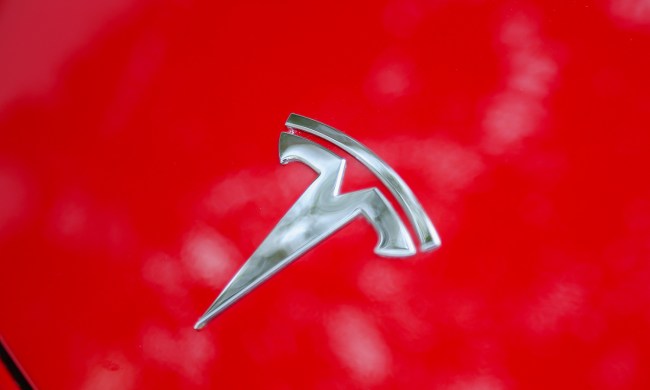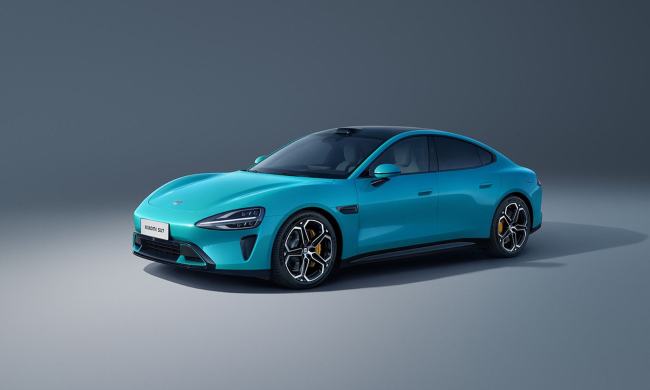Tesla completely transformed the automotive landscape when it introduced the Roadster, pioneering the mass-market electric car and reinventing the car as we know. It sold the first widely-available EV, and it did it with a product that you could easily live with every day. The company has done more to further the electric game than anyone else and deserves total credit for making EVs a part of the discussion when it comes to the future of the automobile. Tesla has changed the world. It’s also doomed.
The last mainstream automaker to be launched from scratch in the United States was Saturn, a heavily subsidized child of the GM family. Even with those deep pockets, it failed. History is littered with dead automotive brands. The list of deceased automakers is also replete with visionary leaders who pioneered new tech and aimed to dominate the luxury market.
The automobile game is tough. The dirty secret is that the big brands only make around 6% margin on every car they sell
This is all to say: we’ve been here before. Hudson, Tucker, DeLorean (twice!), Packard, and more. The stories here are all different in their specifics, with some succumbing to shady government dealing, others losing to price wars. While the immediate causes of their failures might be unique, the fact that they failed certainly is not.
The consumer automobile game is devilishly tough. The dirty secret of the car making world is that the big brands only make around 6% margin on every car they sell. That’s a pathetic amount of profit when compared to other well-known brands like Nike, Apple, or Disney. Shoes, upscale electronics, and entertainment (as well as scores of other industries) all offer double the profit margins, faster production times, less regulation, and fewer unionized workforces. Building cars is dumb. Car companies make billions of dollars in profits because they sell so many cars, not because each car is so profitable. And therein lies the rub for Tesla.
Why Tesla is doomed
The only way to be successful at car manufacturing is to do it at a very large scale. You have to sell hundreds of thousands, if not millions of cars per year to be stable. In 2018, Tesla shifted a total of 245,240 cars. The Tesla Model 3 also became the best-selling luxury automobile in United States; last year was fantastic for Tesla. It also took the company to the very brink of imploding.

Scaling up production lines and capacity is the activity that is killing Tesla, but scaling up further is the only thing that can save it. The company is at the low point of a “production valley” where becoming capable of building 300,000 cars has made them wildly unprofitable, but the only way to get to profit is to build even more capacity to enable it to make 700,000 – 1,000,000 cars. Tesla could potentially have, or raise, the billions needed to do this. It could, that is, if the company could concentrate on doing one thing at a time.
Tesla’s worst enemy is Elon Musk. The serial entrepreneur has an affliction that many serial entrepreneurs have: Shiny Thing Syndrome. Mr. Musk loves to chase after new challenges and novel projects. Tesla is currently producing 3 different cars, wall chargers, charging stations, electric semi-trucks, photovoltaic roofs, and spearheading autonomous technology. Throw in the odd flamethrower, underground tunnels, and a new insurance product (not to mention Space X), and you see a leader not focused on doing the hard work of pushing his company through a crisis of scale, but a man obsessed with moon-shots and new projects.
Scaling up production is the activity that is killing Tesla, but scaling up further is the only thing that can save it
It should be noted that Musk has never operated any business at this scale before. Running a nimble online service such as Paypal is a very different thing than running a multinational car manufacturer — especially one that is exclusively pursuing new technologies. Quite frankly, Musk is not qualified to be CEO of Tesla any longer, and the mismatch of his skills to the company’s needs could not be worse timed for Tesla.
In the next 12 months, practically all other major global auto manufacturers have plans to release their own electric cars. Tesla ate their lunch last year when it became the best-selling luxury car, but at that time, it was the only EV game in town. More worryingly, the most common Tesla owner complaints happen to be the areas that traditional car companies excel at: Fit and finish, service infrastructure, and execution on timelines. When Porsche announced its Taycan electric sedan, its #1 source of reservations was from current Tesla owners. This is a surefire sign that the Tesla customer base is eager to upgrade to something better.
China, the world’s largest car market, and the savior of many global brands, cannot save Tesla. Indeed, the current trade war between the U.S. and China is hurting Tesla more than any other car company. The current price for a Tesla Model 3 in China is approximately $73,000, with roughly $30,000 of that price being the result of China’s import tariffs. In January, Elon Musk broke ground on a Gigafactory in China, and the total investment in the project is expected to exceed $4 billion, according to Goldman Sachs. That is an amount of money Tesla, quite frankly, doesn’t have to spend. After a disastrous first quarter 2019, the company quickly raised $2.35 billion in stock and debt. Even with this recent cash infusion, Musk told employees the company would be out of cash in 10 months if spending continued at current levels.
The end of Tesla
Tesla will not go bankrupt. It cannot go bankrupt. At the moment, the company is still well-placed to raise another funding round and could likely even do as many as three more funding events before investors stop lining up. Failure for Tesla won’t happen tomorrow, but it is coming. More and more evangelists are changing their tunes as competition in EVs gets fiercer. Wall street is losing patience with broken promises and erratic CEO behavior. And the everyday consumer is finding more electric car options that tempt their dollar now that Tesla is not the only game in town. No, Tesla’s end will not happen tomorrow, nor will it be a dramatic collapse.

Telsa is too valuable a brand to disappear in a cloud of Chapter 11 smoke. Again, history bears this out. The vast majority of automotive brands from years past were acquired or absorbed into larger brands, where some succeeded brilliantly (Dodge) and others slowly morphed into something unrecognizable (Hudson). Arguably, the Tesla brand is the most valuable piece of Tesla’s balance sheet as other manufacturers have caught up with their hard technology (batteries, chargers), and are rapidly chasing down their soft technology (Autopilot). The Tesla brand is global in reach, and still viewed favorably overall by the public.
The endgame for Tesla is an acquisition. It is the way of the automotive jungle — the circle of corporate life, as it were. The unknowable part at the moment is exactly who will acquire Tesla, as the list is quite long. Another car company is the reflexive bet, but Silicon Valley and Chinese auto manufacturers are all likely bidders as well. Apple already offered to buy Tesla back in 2013 for more than the company is worth at the time of this story. The field of suitors is wide open, and the eventual winner could well come as a surprise to the everyday public.
Regardless of who steps up to the plate, it will be very surprising if the transaction is labelled as an acquisition. No — this will be a “merger” or “partnership” to protect egos and that all-important Tesla brand (again, the most valuable asset on their books). Any upcoming news of a partnership with a Toyota or a Mercedes should not be seen as a life preserver thrown out in good faith, but a wholesale pirate sacking of the company. Musk will quietly slip away to chase his shiny things, popping in for product launches and tweetstorms, but the adults will be put in charge and set a profitable course. What happens after that, no one can know.
Before the pitchforks come out, make no mistake: The world is a better place for Tesla having existed. Electric cars are no longer made out of old Porsche 914s by a guy in a shed. We are moving toward an electric future, all thanks to underdog Tesla. The world, and Americans especially, are enamored with an underdog story. But more often than not, the underdog loses. That’s why they are underdogs. In the best of worlds, Tesla can influence Mercedes or a Chinese company from the inside to really nail electric cars and make them the most affordable option for consumers. I hope that comes to pass for all our sakes.
Tesla is dead. Long live Tesla.


